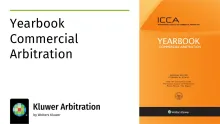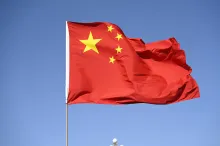Should French Courts Issue Anti-suit Injunctions? Analysing the French Approach in Light of the Proposed Arbitration Law Reform
August 1, 2025
Fourteen years on from the enacting of the 2011 Decree which serves as the framework for French arbitration legislation, the work has begun to modernise the law, preserve its singularity, and enhance France's attractiveness as a leading international arbitration hub. In that context, the French Ministry of Justice appointed a Working Group in 2024 to evaluate existing provisions, identify shortcomings, and propose legislative updates, culminating in a report published in March 2025 (the “Report”).
Among the proposals, particular attention was paid to the role of the “juge d’appui”, the judge responsible for arbitration support within the French legal system. The Report advocates for an ambitious strengthening of this judge’s powers. However, it deliberately stops short of recommending that the juge d’appui be granted authority to issue anti-suit injunctions.
This post considers whether the refusal to vest the juge d’appui with powers to issue anti-suit injunctions should be viewed as a missed opportunity or, in light of recent developments including the UniCredit v. RusChemAlliance (RCA) saga, a principled and pragmatic reaffirmation of the distinctiveness of the French legal framework.
Historical Review of the French Stance Towards Anti-suit Injunctions and Current Approach
French law, in keeping with the broader civil law tradition, has long expressed scepticism towards anti-suit injunctions. This historical distrust is deeply rooted in concerns over national sovereignty. A landmark decision illustrating this stance was delivered by the French Supreme Court, the Cour de cassation, in the 2004 Stolzenberg case. Interestingly, the Court had not even been called upon to rule on the admissibility of anti-suit injunctions, but nevertheless took care to do so in an obiter dictum, making the remark all the more indicative of the French judiciary’s wariness towards these injunctions.
This early, uncompromising position contributed to the enduring perception that anti-suit injunctions are categorically incompatible with French public policy. Through subsequent case law and doctrinal evolution however, the French legal system has progressively adopted a more permissive stance.
The 2009 InZone Brands International v. Intermedia decision marked a significant turning point. In this instance, a United States court had issued an injunction restraining a party from breaching a forum selection clause by pursuing proceedings in France. Contrary to expectations, the French courts granted exequatur to the injunction, on the basis that it merely sought to uphold the parties’ contractual bargain and did not violate French international public policy.
This case laid the foundation for the current French approach to anti-suit injunctions which is the following: while a French judge will not grant an anti-suit injunction, such injunction granted by a foreign court or arbitral tribunal may be enforced in France.
However, this acceptance of anti-suit injunctions is not without its limitations. French courts are only willing to enforce injunctions that meet narrowly construed criteria.
First, the anti-suit injunction must aim to support and enforce pre-existing contractual obligations (e.g., forum selection or arbitration agreements). Accordingly, anti-suit injunctions aimed at preventing arbitration, such as those granted by common law courts on the grounds that an arbitration agreement is void or unenforceable, are inadmissible under French law pursuant to the negative effect of the compétence-compétence principle, which reserves to the arbitral tribunal the authority to rule on its own jurisdiction.
Second, to be recognised and enforced by French courts, an anti-suit injunction must be directed at the parties, rather than the foreign court or tribunal. This requirement stems from international comity, a doctrine which prohibits one court from restraining another’s jurisdiction. The anti-suit injunction must also not result in obstructing a party's access to justice.
Third and very importantly, the enforcement of an anti-suit injunction must comply with the EU’s regulatory framework. Under the Turner and West Tankers case law, courts in EU Member States may not recognise anti-suit injunctions from non-Member State courts when they relate to proceedings before a Member State jurisdiction.
The Court of Justice of the EU (“CJEU”) also clarified in Gazprom that the prohibition on intra-EU anti-suit injunctions does not extend to arbitral tribunals. This opened the door for arbitral tribunals seated in the EU Member States to issue anti-suit injunctions, which, if rendered in the form of an award, may be enforceable by national courts, including in France.
Does the French Approach Unfairly Deprive Parties of an Effective Remedy?
This approach to anti-suit injunctions, perceived as rightly nuanced by some, unfairly limiting by others, has drawn criticism, particularly from common law jurisdictions which see the unavailability of anti-suit injunctions in France as a significant shortcoming. In the infamous UniCredit v. RCA case, the English Court of Appeal criticised the limitations of the French regime regarding anti-suit injunctions as an inability to provide effective remedies against forum shopping, even suggesting that seeking substantial justice in France would be “an illusion” for UniCredit (para. 77).
This criticism may have been on the minds of the Working Group when reflecting on the planned French arbitration law reform. Indeed, several proposals focus on strengthening the role of the “juge d’appui”, a designated judicial authority with the specific role of supporting the arbitral process, particularly when the parties encounter some form of procedural deadlock. In the Report, it is proposed that the juge d'appui be granted expanded powers, in particular to prevent denial of justice and to ensure that procedural stalemates are not weaponised to undermine access to justice.
Despite this proposed reinforced role, the Working Group refrained from proposing to grant the juge d’appui authority to issue anti-suit injunctions.
There are various reasons underpinning this choice:
First, the fundamental EU principle of mutual trust, developed by the CJEU through case law, presupposes that the EU’s common values are recognised in all Member States and, therefore, Member States are trusted to properly implement and abide by EU law. As a result, Member States are barred from interfering, through law, court action or otherwise, with the jurisdictional authority of other Member States' courts. Therefore, as previously highlighted, the EU legal framework would in any event continue to prevent the enforceability of anti-suit injunctions issued against proceedings in another Member State, thereby greatly diminishing the scope of the tool. This prohibition is not a feature on which the French legislature has any leeway.
Second, the French legal system would in any event lack an adequate sanction to the non-compliance with anti-suit injunctions. Notably, there is no contempt of court mechanism comparable to that in common law systems. French courts may impose penalties for non-compliance with judicial orders (including daily, cumulative penalties called “astreinte”). Contempt of court, however, serves as a much more powerful deterrent against non-compliance as it can range from civil and criminal fines to imprisonment. This lack of a straightforward coercive measure is often seen as limiting the French courts' ability to compel compliance with anti-suit injunctions with sufficient effectiveness, compared to their common law counterparts.
Third, the Working Group stated that the practical utility of such measures would likely remain limited. This assessment might be viewed as a broader commentary of the questionable efficacy of anti-suit injunctions in many instances, which was illustrated in the latest developments of the UniCredit saga.
Indeed, in April 2025, the St. Petersburg Commercial Court upheld anti-suit, anti-arbitration, and anti-enforcement injunctions obtained by RCA against UniCredit in Russia, effectively threatening UniCredit with a €250 million fine should it seek recourse outside of Russian courts. Earlier landmark English court injunctions had intended to enforce Paris-seated ICC arbitration clauses –based on the fact that obtaining justice before French courts would have been “illusory”. However, the actions of Russian courts have effectively rendered these injunctions meaningless in practice.
The power of disruption held by Russian jurisdictions stems from a 2020 Law, which granted Russian courts exclusive jurisdiction over disputes involving sanctioned parties. This law allows Russian parties to apply to Russian courts for an anti-suit injunction to prevent any proceedings abroad. In theory, arbitral tribunals could decline to stop proceedings, giving rise to parallel proceedings. However, as demonstrated by the UniCredit case, Russian courts have an effective tool to enforce the injunctions: in case of a breach, extensive damages can be awarded to the party who obtained the injunction, arguably a more formidable weapon than contempt of court in the circumstances.
Notwithstanding the high degree of effectiveness associated with the UK-issued anti-suit injunctions, compliance with Russian court orders have hence become an unavoidable reality for entities due to the location of substantial assets in Russia. This had led UniCredit, as well as other banks, to request the lifting of the injunction it had itself requested from the English court, considering that the continued escalation of potential liabilities and threats to its Russian assets had made the injunctions little more than a Pyrrhic victory.
Conclusion
In light of these considerations, the Working Group appears to have seen no practical value in adopting an approach the efficiency of which, in essence, depends primarily on the location of a party's interests and assets and therefore the plausibility of the “threat”. An anti-suit injunction, when granted or when recognised, is indeed only as effective as the enforcing court’s ability to reach the targeted party or its property, although one may argue that this choice should be left to the parties, and that domestic courts should offer these tools without regard to their practical effectiveness.
Even so, the lack of interest of the French legal system in adopting anti-suit injunctions should not be understood to mean that no effective procedural tools are available to protect against the breach of an arbitration agreement. In addition to the recognition of foreign courts or arbitral tribunals' anti-suit injunctions, alternatives such as refusing to recognise foreign judgments (outside of the EU) rendered in breach of arbitration agreements (possibly coupled with an action in damages against the breaching party), or even claims in restitution (“répétition de l’indu”) for sums obtained through procedurally abusive judgments, are all forms of relief available before French courts. Further, practitioners may even consider more creative avenues, such as the possibility of a tort action for procedural abuse such as forum shopping, which was argued but ultimately not admitted in the 2010 Vivendi Paris Court of Appeal ruling, though that case never reached the Cour de cassation.
While some may contend that these remedies are considerably less straightforward, less immediate, and less practical than an anti-suit injunction, they may in fact yield the very same results as an anti-suit injunction. Where there are no assets to enforce against, this may well mean no results at all.
Whether France ever takes the unlikely leap of granting anti-suit injunctions, for these parties seeking to prevent the violation of an arbitration agreement, the real challenge will therefore always lie not in the nature of the available tools, but in holding the leverage to hold their counterparties to the bargain.
You may also like










